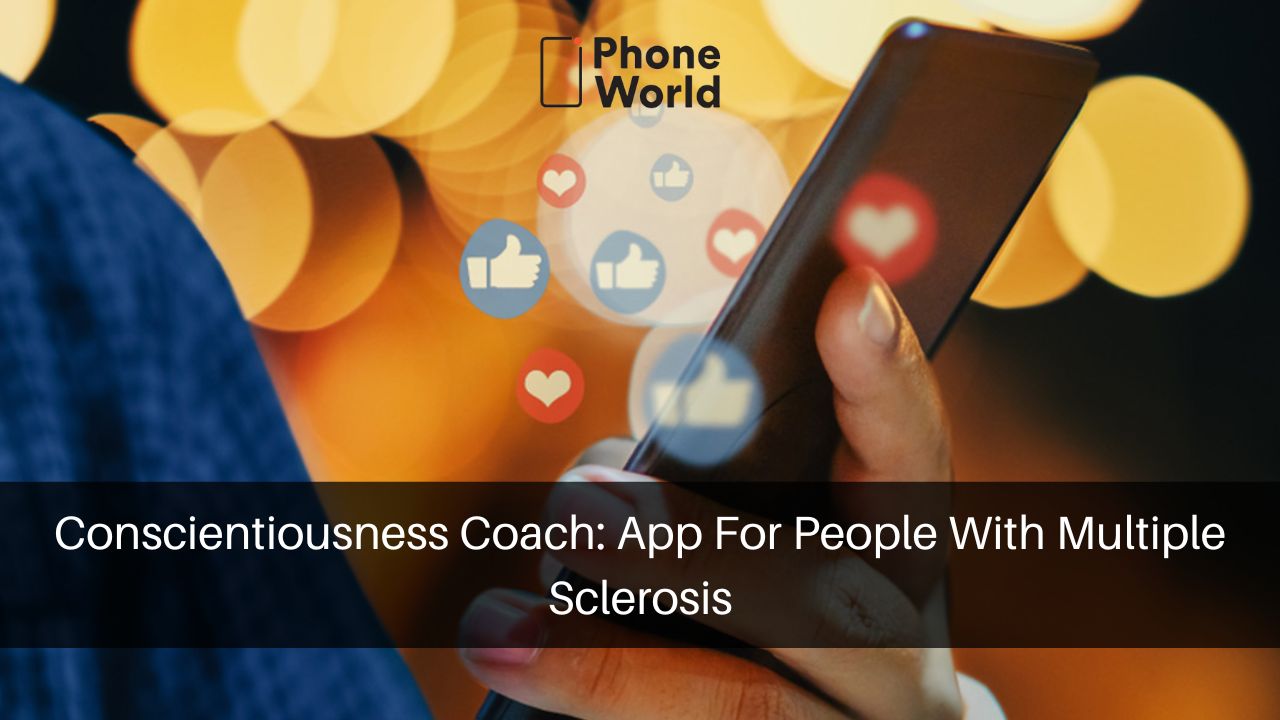Conscientiousness Coach App: Aims To Help Multiple Sclerosis Patients To Avoid Cognitive Decline

The Conscientiousness Coach was created by Ralph Benedict, a professor of neurology in the University at Buffalo’s Jacobs School of Medicine and Biomedical Sciences.
Benedict was the first to show that multiple sclerosis (MS) patients with low levels of conscientiousness also had impaired cognitive function. Studies of persons in the early stages of Alzheimer’s disease have yielded similar results.
Conscientiousness, one of the five pillars of personality, refers to a person’s level of orderliness, focus, and self-control. Recent pilot studies suggest that this type of app-based behavioral intervention can benefit those who are low in conscientiousness, and may even contribute to better work outcomes.
It’s important to note that 80% of persons with MS will be forced to leave the working before they reach the age of 65, and that half of those people will lose their jobs within five years after diagnosis.
DOES CONSCIENTIOUSNESS PROMOTE RESILIENCE?
For almost a decade, Benedict has investigated the correlation between conscientiousness and MS results. “Conscientiousness is that notion of ‘I’m on top of it,” he explains. Having a high level of conscientiousness may be linked to the concept of cognitive reserve, which is “a kind of mental leeway built up over the course of a lifetime that supports resilience in the face of cerebral impairment”, Benedict explains.
In contrast, moving from mild cognitive impairment to dementia is linked to less conscientiousness.
Benedict made reference to the well-known 2009 Nun Study, which demonstrated that many nuns who showed pathologic symptoms of Alzheimer’s disease during autopsies did not show cognitive indicators of the disease during their lifetimes.
“The authors of that study presented a theory that high cognitive reserve is the buffer to pathology, whereas a person with low cognitive reserve starts to show symptoms of cognitive decline much sooner”, Benedict says.
When it comes to the cognitive deterioration that many MS patients experience as the disease progresses, Benedict was one of the first to apply that idea to them.
Previous work by him and his colleagues at the Buffalo Neuroimaging Analysis Center showed that a patient’s conscientiousness can be used as a predictor of brain shrinkage in multiple sclerosis, with low conscientiousness patients showing more rapid and severe neurodegeneration.
OBJECTIVES FOR PEOPLE WITH MULTIPLE SCLEROSIS
“I suggested that conscientiousness may be a way to think about maintaining or enhancing cognitive reserve in MS”, Benedict explains. With this idea in mind, he and his team created Conscientiousness Coach, a smartphone application for MS patients that is currently being tested in a randomized clinical study.
Participants are guided through the process of articulating their value structure in an introductory meeting, with the intention of linking each value (e.g., those related to family, work, hobbies, spiritual or religious concerns, cultural values, etc.) to a specific set of attainable, measurable goals. Goal-related activities are planned out using alerts and a calendar.
Benedict explains that this practice aids participants in establishing intermediate and attainable objectives and daily re-orients them to their value system. Subsequent appointments can be held in person or via telehealth, with the patient continuing to utilize the individualized software on their mobile device.
“In the short-term, we are teaching people how to compensate for low conscientiousness,” says Benedict. Based on the results of a pilot trial, published in the International Journal of MS Care, this strategy shows promise.
“We believe the therapy is helping those low in conscientiousness to compensate, and hopefully maintain this aspect of cognitive reserve. The app is a practical tool to enhance behaviors that mimic high conscientiousness.”
Benedict needs funding from sponsors to expand the scope of existing research investigations using the app.
Read more: Video Games Can Bring Cognitive Benefits For Kids
PTA Taxes Portal
Find PTA Taxes on All Phones on a Single Page using the PhoneWorld PTA Taxes Portal
Explore NowFollow us on Google News!